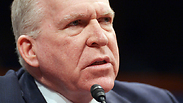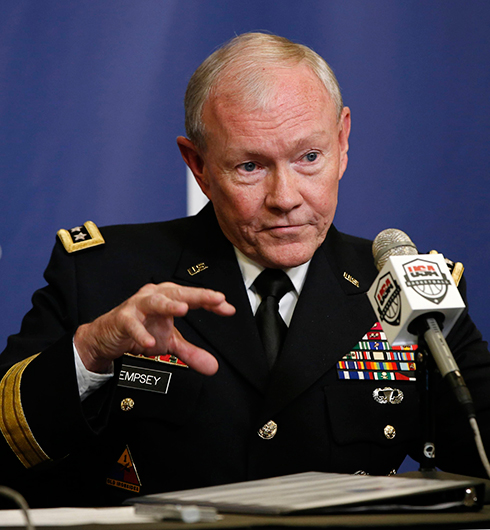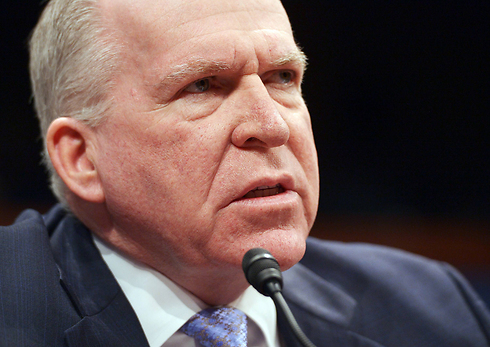
Heads of CIA and US military visit Israel ahead of Iran deadline
Talks with Israeli defense chiefs said to focus on mechanisms to ensure Iran adheres to nuclear deal.
CIA Director John Brennan paid a visit to Israel last week, meeting with Prime Minister Benjamin Netanyahu and top security officials to discuss the emerging agreement with Iran over its nuclear program and ways to ensure that it adheres to its terms.
His unpublicized visit, reported Tuesday by the daily Haaretz, came several days before that of the chairman of the US Joint Chiefs of Staff, Gen. Martin Dempsey, who arrived Monday as the guest of Israel Defense Forces Chief of Staff Gadi Eisenkot. Dempsey will also meet with Netanyahu and Defense Minister Moshe Ya’alon.
Although planned some time ago, both visits come just weeks before the June 30 deadline for talks with Iran on curbing its nuclear program.
While Netanyahu and most Israeli politicians are still harshly critical of the deal being worked out between Iran and six world powers, Israel's defense establishment reportedly believes it has positive aspects.
On Monday, Deputy Secretary of State Anthony Blinken said Iran has upheld all of its obligations under the January interim nuclear agreement with a group of six world powers. Blinken, speaking to a Washington audience, said Israel’s security had already been improved under the provisions of the temporary agreement, The Times of Israel reported.
Acknowledging that Israel and the United States have disagreed on ways to prevent Iran from making nuclear weapons, Blinken said that “we may have our differences, but our bedrock security relationship is sacrosanct and it is stronger than ever. It is at the center of our minds when we sit at the negotiating table with Iran.”
Brennan came bearing a similar message for his hosts - Mossad head Tamir Pardo, the head of Military Intelligence, Maj. Gen. Herzl Halevi and National Security Adviser, Yossi Cohen.
A few days before his arrival in Israel, Brennan told "Face the Nation" that the diplomatic and political tensions between President Barack Obama and Netanyahu are not harming cooperation between the intelligence organizations of the two countries.
“There is very, very strong relationship between the United States and Israel on the intelligence, security and military fronts,” he said. “It’s one of the great things, I think, about our system; there can be policy differences between our governments but the intelligence and security professionals know that we have an obligation to keep our countries safe and secure.
In his interview on CBS, Brennan also said the deal with Iran will include rigorous inspection mechanisms for monitoring Iran’s nuclear facilities.
“I believe that the US intelligence and other intelligence agencies will need to be able to continue to watch, monitor and see whether or not Iran is adhering and abiding by the various requirements of the deal,” he added. “We're working very closely with our partners to do that. We've learned a lot about the Iranian program over the last decade. So I'm confident that we're going to be able to bring to bear some of those capabilities that we -- and expertise -- that we have developed.”
Blinken, for his part, argued that Israel is safer now from a nuclear Iran than it was 18 months ago, before the Joint Plan of Action was implemented and Iran received partial sanctions relief.
As a result of the agreement, Blinken asserted, “Iran has halted process on some aspects of its nuclear program and has rolled it back in certain ways.” International inspectors, he said, “have been able to verify that Iran is indeed living up to its commitments.”
The New York Times, on the other hand, reported last week that according to international inspectors, Iran’s stockpile of nuclear fuel increased about 20 percent in the period since nuclear negotiations began.












